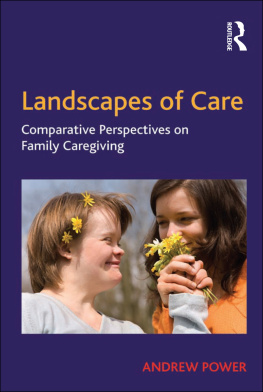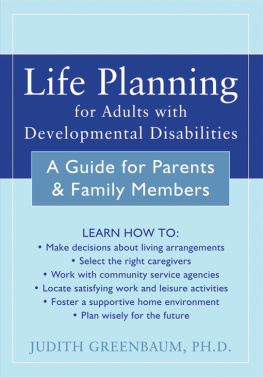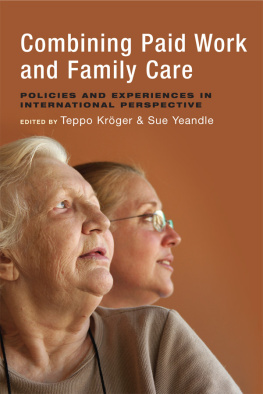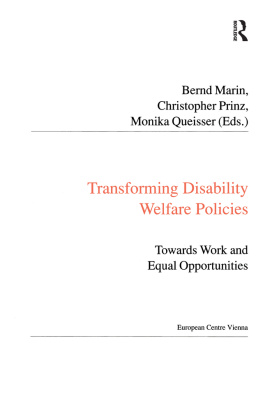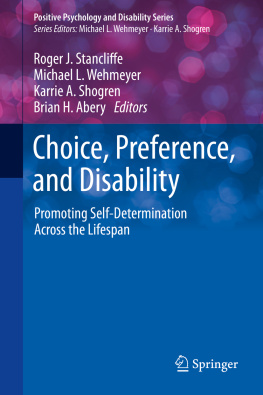LANDSCAPES OF CARE
Landscapes of Care
Comparative Perspectives on Family Caregiving
ANDREW POWER
National University of Ireland Galway, Ireland
First published 2010 by Ashgate Publishing
Published 2016 by Routledge
2 Park Square, Milton Park, Abingdon, Oxon OX14 4RN
711 Third Avenue, New York, NY 10017, USA
Routledge is an imprint of the Taylor & Francis Group, an informa business
Copyright Andrew Power 2010
Andrew Power has asserted his right under the Copyright, Designs and Patents Act, 1988, to be identified as the author of this work.
All rights reserved. No part of this book may be reprinted or reproduced or utilised in any form or by any electronic, mechanical, or other means, now known or hereafter invented, including photocopying and recording, or in any information storage or retrieval system, without permission in writing from the publishers.
Notice:
Product or corporate names may be trademarks or registered trademarks, and are used only for identification and explanation without intent to infringe.
British Library Cataloguing in Publication Data
Power, Andrew.
Landscapes of care : comparative perspectives on family caregiving.
1. People with mental disabilities--Care--England.
2. People with mental disabilities--Care--Ireland.
3. People with mental disabilities--Care--United States.
4. Caregivers--Government policy--England.
5. Caregivers--Government policy--Ireland.
6. Caregivers--Government policy-United States.
7. Caregivers--Services for--Cross-cultural studies.
I. Title
362.3'8-dc22
Library of Congress Cataloging-in-Publication Data
Power, Andrew.
Landscapes of care: comparative perspectives on family caregiving / by Andrew Power.
p. cm.
Includes bibliographical references and index.
ISBN 978-0-7546-7950-9 (hardback) -- ISBN 978-1-3155-9141-4 (ebk)
1. Public welfareGreat Britain. 2. Great BritainSocial policy. 3. Public welfareUnited States. 4. United States--Social policy. 5. Public welfare--Ireland. 6. Ireland--Social policy.
I. Title.
HV245.P663 2010
361--dc22
2010017366
ISBN 978 0 7546 7950 9 (hbk)
ISBN 978 1 3155 9141 4 (ebk)
ISBN 978 1 3171 0809 2 (ebk-ePUB)
Contents
List of Tables
Preface
The care of people with intellectual disabilities is provided through a variety of sources. Of all these sources, the informal sector made up of family caregivers is the largest. This book is concerned with the geographies of carer support and how institutional structures at national, regional and local levels interlock to provide systems of care support. The book raises pertinent questions around the role of government, civil society and service providers in family support.
At the national level, state and voluntary services are analysed in the US, England and Ireland by examining how caregivers are targeted by the different models of welfare. A post-structuralist perspective is used to examine how carers and care recipients are socially constructed across space and place, and how care discourses have manifested themselves in the actual provision of care services. Interviews were carried out with statutory and voluntary carer support agencies on how policies are interpreted and implemented on the ground in each country.
To explore these issues in more depth, this book examines the case of Ireland in more detail. Ireland has a very distinct history of support across scale and possesses a unique blend of Catholic conservative family policy and neo-liberal statutory provision. This forms a particularly interesting case study in examining broader debates in welfare and redistributive justice.
This case study is informed by the narratives of family caregivers who are affected by existing policy. Particular attention is paid to the everyday geographies of care and experiences of support services by the families themselves. The caregivers accounts illustrate both the social and spatial difficulties of navigating through a landscape of care characterised by insufficient and conflicting information on services, a lack of shared knowledge between service providers and limited available services, and how these problems shape the caregiving experience within the home.
Acknowledgements
I would like to thank Professor Rob Kitchin and Dr Ronan Foley for their help, advice, encouragement and direction during my time at NUI Maynooth. The fieldwork during my time there was funded by the National Institute for Regional and Spatial Analysis (NIRSA).
I would also like to thank Brigid Barron, May Gannon, Claire Douglas, Paddy OShea, Winifred Quin, Christine Milligan, Tony Gatrell and Susan Reinhard for their help in getting (and keeping) the fieldwork off the ground. A quick thanks also goes to Phil MacMenamin, Holly Platt, Katrina Roen and Sabrina Mazzoni for their hospitable welcome abroad.
There are many friends and colleagues in both the Department of Geography at NUI Maynooth and NIRSA who I cannot mention individually, but whose kindness and helpfulness never went unnoticed.
Finally, special thanks must go to my family and my partner Jenny for their support and patience throughout the writing of this book.
Chapter 1
Introduction
There are only four kinds of people in the world those who are currently caregivers, those who have been caregivers, those who will be caregivers, and those who will need caregivers.
Rosalynn Carter (former First Lady) Helping Yourself Help Others
Since de-institutionalisation began in the 1970s in many Western jurisdictions, family caregiving has been affected by an orchestrated set of policies and measures aimed at reducing state involvement in welfare provision. Home care has arguably been a victim of larger neo-liberal processes in which economic, socio-cultural, and political problems are displaced into voluntary services and the family in order to restructure state responsibility and save public finances. Support provided by family and friends is the critical foundation of community care. In particular, caregiving for young adults with intellectual disabilities is in large part determined by the resources of individual families and the mix of community services available. Often a lack of support mechanisms for carers can lead to other considerable social and economic costs such as family breakdown and institutionalisation.
Over the last decade or so, the landscape of care support within capitalist welfare states has become more and more decentralised, with increasing reliance on the voluntary sector. This has occurred after years of political and ideological debate about the potential for voluntarism to resolve their fiscal problems (Salamon et al., 2003). Parallel to this, there has been a greater tendency to introduce increased competition, procurement and contractual management across these states, for managing the relationship between the different actors within the welfare sector. The Compact in the UK and the Accord in Canada are examples of new ways in contracting with the voluntary sector (Plowden, 2003; Creese, 2006). This has led to a significant debate in social policy and new public management literature which discusses the relative merits of increased contracting and governance by the state in the nonprofit sector. Central to this debate are the effects on family caregivers themselves. Both the type and extent of family care have been shaped by differing political and socio-cultural constructions of care and how these have been interpreted within a framework of rights and responsibilities. As the book shall explore, this framework and the precise form of neo-liberalism that states have adopted are historically and geographically specific.

